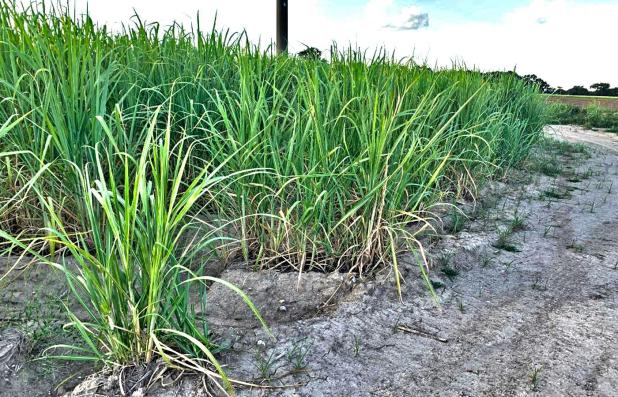
Because of the lack of rain, some sugarcane in the parish has grown three or four feet, when it should be at least 10 feet high at this time of year.
Farmers facing tough decisions if Mother Nature does not provide rain
Sugarcane needs water; without it, it will not grow and could die.
Over the last month, the parish has received little or no rain and has dealt with 100-degree temperatures. Today’s sugarcane can handle high temperatures, but it cannot take not having rain over an extensive period.
The parish is dealing with extreme drought conditions, the worst in at least 25 years.
Sugarcane can grow 10 to 13 feet high when Mother Nature cooperates. Today, some sugarcane crops are only four to five feet tall, and the leaves are turning brown because of the lack of water.
“Farmers know how to handle a hurricane or a freeze. They know what the crop can handle and how it will react,” said Blair Hebert, a county agent for the LSU Ag Center. “But a drought is different. Today’s sugarcane farmers have never experienced a drought this bad. In the 1950s and 1960s, they experienced it, but it is different today.
“We have no historical reference to go on.”
Because there has been little or no water, sugarcane farmers will soon have to make tough decisions in the next two or three weeks if Mother Nature continues to be hard-headed.
How serious is it? Very. If rain, and lots of it, does not fall in the next two weeks, sugar cane farmers may have to plow under their crop because it is too small to harvest.
“It is a concern,” he said. “This could be tough for some farmers.”
They can only make money if they have a crop to take to the sugarcane mill. With at least 30,000 acres of sugar cane in the parish, not harvesting sugar cane would be a significant economic blow to Vermilion Parish.
For every dollar a sugar cane farmer makes, he puts back $2.50 into the local economy. If a farmer loses money, so does the parish.
“He is not buying a truck or going to eat in restaurants,” said Hebert. “The parish will feel it, also.”
This week, some parish farmers are taking extreme measures to put water in their fields. Like rice farmers, they pump water from the canals into their fields, hoping it will help the plants grow, but it is also expensive.
Farmers plant a new crop from August 1 to the end of September.
But today, planting is also a challenge. Some farmers can not harvest the existing crop because it is too short in the fields to cut. And those that are harvested are also shorter than usual and have fewer joints.
Also, due to the drought problems, the mills in Iberia and St. Martin parishes are looking at pushing back the start day to Oct. 2.
Hebert, a 1988 North Vermilion graduate, said he needs a crystal ball to predict the future for sugar cane farmers. He said farmers are all talking with one another to see what the other farmers are doing in this crisis.
“Every farmer will have to make a decision. Many farmers are making plans for the worse. Some will also hold out for rain,” Hebert said.
